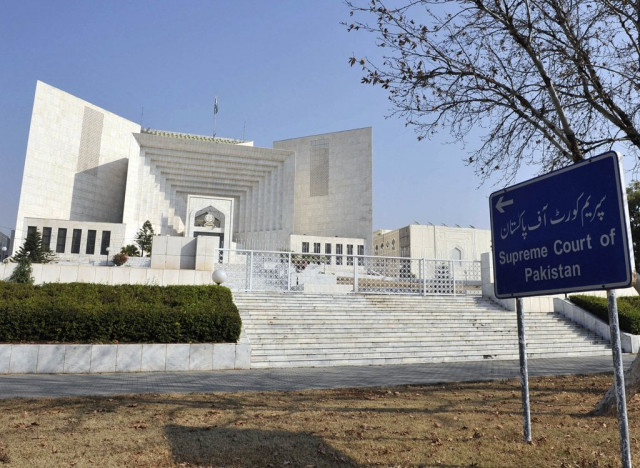Supreme Court defines terms for ‘grant of bail’
Apex court rules matter cannot be subject to riders and conditions

The Supreme Court has ruled that grant of bail cannot be subjected to “riders and conditions”.
"Judicial discretion in bail matters is by now clearly contoured. Having regards to the facts and circumstances of each case, the court may decline the request even in cases falling outside the remit of prohibition.
“However, exercise of judicial authority cannot be abandoned to relegate in subservience to the arrangements inter se the parties for the disposal of bail petitions nor the corporal coercion can be allowed to extract swift settlements or concessions in lieu of a promised freedom," said a two-page order authored by Justice Qazi Muhammad Amin Ahmed
The order came while granting post-arrest bail to accused/petitioner Jahanzeb Khan who had allegedly issued two cheques to complainant Masoodur Rehman in the sums of Rs2,000,000 and Rs9,700,000, respectively, but the financial instruments were bounced.
After arrest, the accused was released on bail by a magistrate on December 27, 2019 on the basis of iqrarnama (consent deed), purporting clearance of a substantial portion of the default.
The complainant disputed genuineness of the instrument, in view whereof, an additional district and sessions judge cancelled his bail on February 27. Likewise, the high court also rejected his bail petition on May 15.
However, the two-judge bench of the apex court noted that it would be inexpedient to attend factual divergence over the impugned arrangement that appeared to have paved the petitioner’s way for his release on bail at the magisterial forum through a negotiated settlement though retracted subsequently, a circumstance resulting into cancellation thereof; it appeared to have weighed with the high court to decline the request as well.
The court held that grant of bail cannot be subjected to riders and conditions, if otherwise, a case stands made out.
“In criminal dispensation of justice, the court being an independent adjudicator at all stages must religiously maintain its neutrality without having any responsibility to the either side; it is more important in cases involving recoveries and retrievals for the complainant, designed to be effected through plenary modes and procedures other than criminal prosecution" said the order.
The court further ruled that deviation off the beaten path would throw normal statutory arrangements to the wind, therefore, petitioner’s release and his subsequent arrest on the basis of an abortive/disputed arrangement failed to commend the court’s approval.
The court noted though there was a reference to the issuance of bank cheques and their failure on the bank counter, nonetheless, details of financial obligation in satisfaction whereof the instruments were purportedly issued was conspicuously missing in the crime report.
"Substantial amounts notwithstanding, nonetheless, offence complained is punishable with three years’ imprisonment or fine or with both and as such does not attract the statutory bar."
The court observed that continuous detention of the accused was not likely to improve upon the investigative process, already concluded, thus, he could not be held behind the bars as a strategy for punishment.
"A case for petitioner’s release on bail stands made out. Criminal petition is converted into appeal and allowed; the petitioner shall be released on furnishing bonds in the sum of rupees one million with two sureties each in the like amount to the satisfaction of the learned trial court/duty magistrate," the order concluded.
Renowned criminal law expert Saiful Malook Advocate believed that Justice Amin in this order had given new dimensions to grant of bail in 489 F-PPC.
The lawyer said it was for the first time that the apex court held that jurisdiction of court could not be subjected to any condition.
He said, likewise, it was also held that bail in 489 F-PPC case could not be used as pressure tactics for the recovery of amount.
He also stated that the order should be reported in PLD for public interest and guidance for high courts as well as district judiciary in such matters.



















COMMENTS
Comments are moderated and generally will be posted if they are on-topic and not abusive.
For more information, please see our Comments FAQ